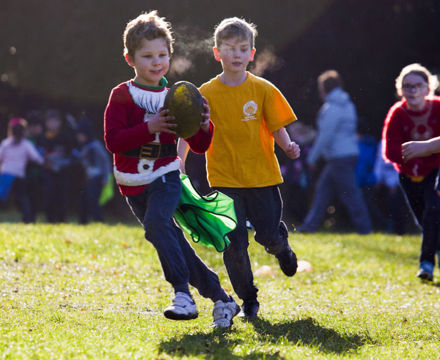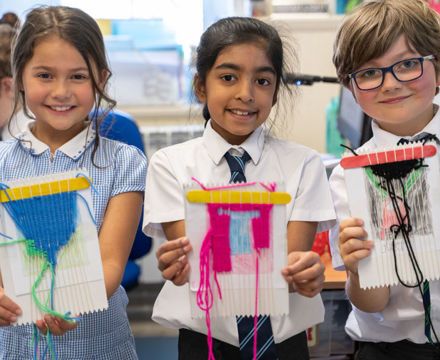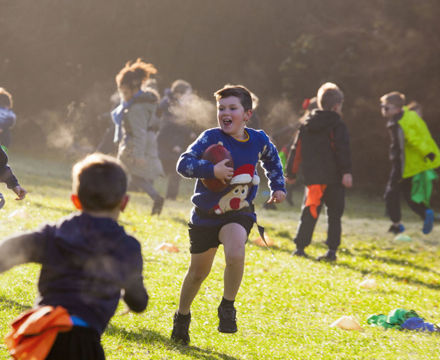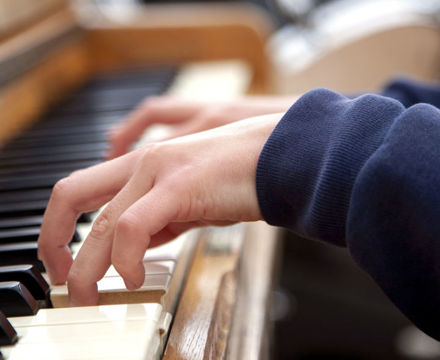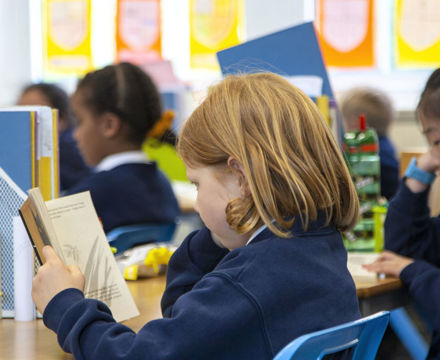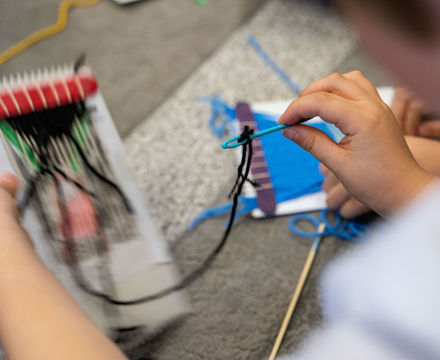Spring Term 2025
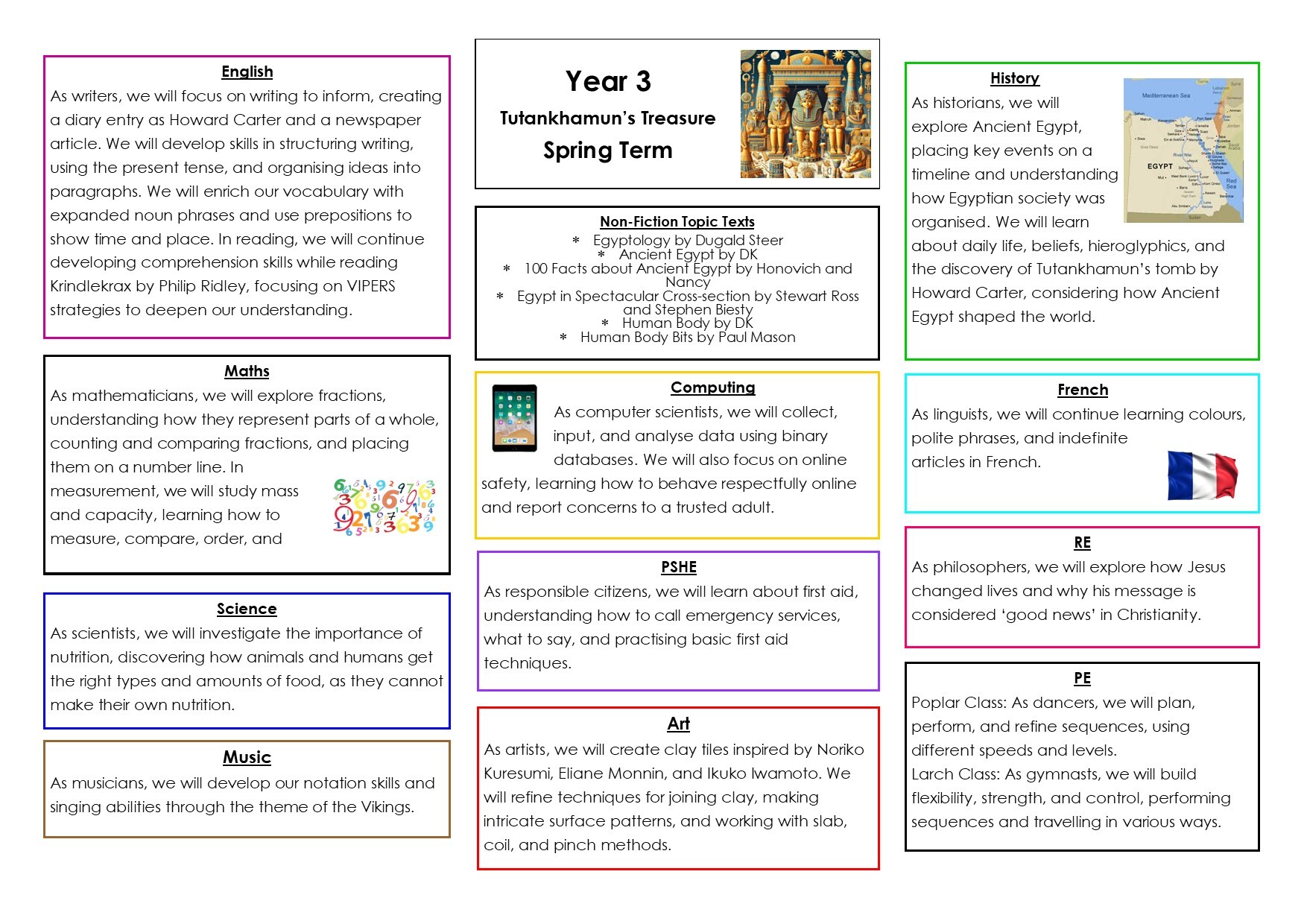
Year 3 Word Aware words for Spring 2Year 3 curriculum overview
Year 3 Parent Information Slides 2024
Year 3 End of Year Expectations
Year 3/4 common exception words
English
In Year 3, we aspire for all children to develop their independence and enthusiasm for learning. We focus on identifying the key features of a range of genres and developing the use of these in our own writing. This may begin with reading a range of examples and evaluating their usefulness before practising specific skills including relevant grammar and punctuation. This will lead to our final writing sequence which includes a first draft, a chance to edit and improve and finally publishing for a wider audience. Writing activities are purposeful and, wherever possible, linked to our topic.
Our weekly guided reading sessions often relate to our topic and/or writing genre whilst developing a reading skill. Independent reading is encouraged and given a purpose through Accelerated Reader. This monitors and informs the teachers and children of their progress.
Support is offered through targeted interventions and personalised targets. Teachers and learning assistants give constructive feedback during lessons, as well as facilitating and encouraging self and peer assessment.
Maths
In Year 3 we aim to ensure that pupils become increasingly fluent with whole numbers and the 4 operations, including number facts and the concept of place value. We follow the White Rose Scheme of Learning to enable children to master an understanding and love of maths. Children work independently and collaboratively using a range of manipulatives. They are encouraged to develop reasoning skills by exploring and recording different methods when solving a problem and explaining their preferred method. We offer consolidation groups for those who may need some support as well as challenge activities.
We expect children to continue to learn their times tables at home and we have regular quizzes at school to develop rapid recall and application of these number facts.
Science
The focus of our science teaching in lower Key Stage 2 is to enable pupils to broaden their scientific view of the world around them. We do this through exploring, talking about, testing and developing ideas about everyday phenomena and the relationships between living things and familiar environments. We encourage the children to ask their own questions and make some decisions about which types of scientific enquiry are likely to be the best ways of answering them.
In Year 3 our topics will cover Plants, Animals including humans, Rocks, Light and Forces and Magnets.
Spiritual, Moral, Social and Cultural Development (SMSC)
All our learning is linked to our school mission statement and school aims. Our whole school values of resilience, respect, resourcefulness, responsibility and being reflective are embedded throughout the curriculum and help to develop SMSC. We promote the British value of democracy through our school council. Each class elects a representative to attend regular meetings; members share and discuss proposals, as well as further ideas and actions. During circle time we are able to allow children time to discuss moral and social issues and coach them to resolve any problems they may face. We have developed an environment where all children respect and celebrate cultures and languages. We celebrate positive behaviour choices through class reward systems, our whole school house system, golden tea party and celebration assembly.
Top Tips for Year 3 Parents
- Visit the library as often as possible.
- Encourage children to read books at the appropriate level for them and complete the Accelerated Reader quiz at school.
- Schedule a regular time for reading.
- Look for opportunities to rehearse times tables. By the end of Year 3, children need to know their 1, 2, 5, 10, 3, 4 and 8 times tables and be able to recall any of them rapidly, not just in order. They can practise the related division facts if they want to be challenged further.
- Let your child handle money, work out how much things cost and work out change.
- Board games can be a great way to practise maths and English skills.
- Encourage correct letter and number formation when writing at home.
- Encourage your child to question the things they see, to wonder how and why things happen, so that they can become deep thinkers. Research together to find answers.
- Talk as a family about your day. Take turns to share something you learnt and the best bits.
Homework
You can find our KS1 and KS2 Homework Policy here.
Our approach to homework is one where we believe that homework should complement our learning in school and not be a stressful experience at home.
Parents are key educators in their children’s lives and have a critical influence over the success of children’s learning. We suggest that in the early stages of a child’s school life at least 10 minutes is set aside each day to talk to your child about their learning, to read with your child, play games and develop their self-help skills.
As your child moves through the Primary phase they will begin to have more formal tasks such as learning multiplication tables and spellings, projects; and be expected to work for longer periods and with increasing independence.
Homework can also be a walk in the park, a swimming trip, baking, an art activity, visiting family.
For the full version of the spelling lists, please click on the following link:
To find out more about the curriculum we follow, please click on the following link:


